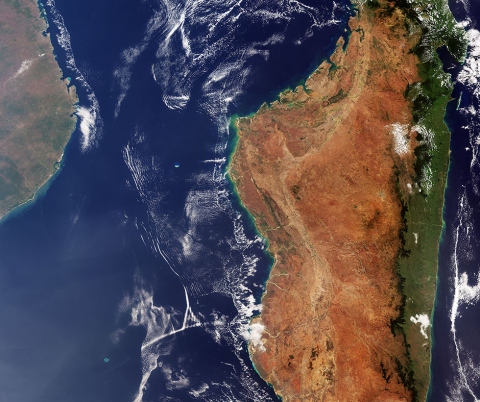Biocultural Sustainability in Madagascar (2022-2023)
In recent centuries, industrialized nations and globalized supply chains have exhausted natural resources, driving the loss of biological and cultural diversity and diminishing the ecosystems on which we all depend. Meanwhile, a billion people worldwide lack adequate access to safe, nutritious food.
In Madagascar, a global hotspot for both biodiversity and extinction, millions of people depend on local natural resources for their livelihoods. For example, people harvest trees from the forest to build their homes and hunt wildlife for daily sustenance. Although those practices may be sustainable to varying degrees, the current rate of forest loss and hunting endanger thousands of species, including the iconic lemurs, while millions of people face challenges such as food insecurity, malnutrition and poverty. Therefore, there must be a balance between biodiversity conservation and the livelihoods of local people who depend on the land.
This project team worked to examine the sustainability of the current livelihood strategies of forest frontier communities in Madagascar and develop strategies for transition toward sustainable lifestyles.
In summer 2022, team members traveled to northeast Madagascar to collaborate with colleagues at the Centre Universitaire Régional de la SAVA and the Ambodivoara COBA (a local forest management association). They surveyed the lemur and plant populations to assess ecosystem functioning and conducted household surveys, interviews and focus groups. Throughout the year, students conducted literature reviews and analyzed data.
The team’s results highlight variation in lemur populations across species and sites, and note that environmental variables such as forest loss affect lemur population dynamics. They also found that over 80% of their survey respondents experience food insecurity. Overall, there is a need and desire for community-based conservation initiatives to help meet the needs of both the people and wildlife in this area.
Timing
Summer 2022 – Spring 2023
Team Outputs
Lemurs and Livelihoods in the Forests of Madagascar (2023 Fortin Foundation Bass Connections Virtual Showcase)
Biocultural Sustainability in Madagascar (poster by Anne Yoder, Ardhilles Andriantinefiarijaona, Autumn Burton, Bethany Old, Camille DeSisto, Candidier Dimbiarijaonina, Charlie Welch, Dedriek Whitaker, Edgar Rabevao, Edouard Mahazandry, Emerancine Raharizafinirina, Elise Boos, Emily Sandberg, Esperio Jaozandry, Feno Telessy, George Raveloson, Jean Eric Tsilanizara Jean Ranohianasy, James Herrera, Jean Tiamanana, Jeantauné Njakandrina, Louisene Olina, Lucy Law, Maggie Poulos, Mamy Omega, Nandrasana Judolin Raherison, Nantenaina Eliantine, Nestorine, Prisca Joel, Raherisoa Angele, Razanadraina Quinti, Tristan Frappier-Brinton, William Ramalanjaona, Ximena Gonzalez-Revilla and Zico Zandry, presented at the Fortin Foundation Bass Connections Showcase, Duke University, April 19, 2023)
Videos
Lemur Surveys and Research in the COMATSA
Sociological and Agricultural Work in Ambodivoara
This Team in the News
To Get a Fuller Picture of a Forest, Sometimes Research Requires a Team Effort
The Evolution of an Evolutionary Biologist
Duke Students Research Lemurs, Agriculture and Public Health Alongside Peers in Madagascar
Vanilla Farming, Climate Change and Community Efforts in Madagascar
From Agroecology to Lemur Measurements: A Holistic Approach to Conservation in Madagascar
It Takes a Village: Conservation and Research in Rural Madagascar
Meet the Winners of the 2022 Bass Connections Student Research Awards
See related Story+ project, Biocultural Sustainability in Madagascar (2022), and related team, Biocultural Sustainability in Madagascar (2023-2024).
Image: Madagascar, by European Space Agency, licensed under CC BY-SA 2.0

Team Leaders
- Catherine Admay, Sanford School of Public Policy- Duke Center for International Development
- James Herrera, Duke Lemur Center – SAVA Conservation
- Charles Welch, Duke Lemur Center
- Anne Yoder, Arts & Sciences-Biology
/graduate Team Members
-
Elise Boos, Master of Environmental Management, Ecosystem Science and Conservation, Geospatial Analysis
-
Camille DeSisto, Ecology-PHD
-
Tristan Franzetti, Biology - PHD
-
Tristan Frappier-Brinton, Biology - PHD
-
Bethany Old, MIDP 2 Year Masters
-
Margaret Poulos, Masters of Public Policy
/undergraduate Team Members
-
Autumn Burton, Environmental Sci/Policy (AB)
-
Zeinab Mukhtar, Statistical Science (BS)
-
Emily Sandberg, Evolutionary Anthropology (AB)
/yfaculty/staff Team Members
-
John Poulsen, Nicholas School of the Environment-Environmental Sciences and Policy
-
Ranaivo Rasolofoson, Nicholas School of the Environment-Marine Science and Conservation
/zcommunity Team Members
-
Centre Universitaire Régional de la SAVA
